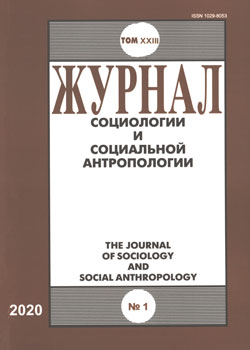Медиаторы структурных неравенств в здоровье в странах Европы: социальный капитал близкого окружения и доверия людям
Ключевые слова:
Аннотация
SES inequalities in health, according to theoretical assumptions that have not yet been conclusively substantiated in empirical analysis, can be partly explained by the mediating effects of social capital. It has been suggested that the support of close people can play a greater mediating role in countries with a weak social state, and general trust in other people — where strong social policies are in place. This assumption was verified using survey data for 27 countries from the European social survey (ESS), statistics for these countries on public health expenditure, and a two- level analysis of the mediation effects. The results confirm that health in Europe is unevenly distributed across socio-economic structure –it is usually much worse in the lower, than higher social strata. Social capital plays an important role in maintaining good health and mediates structural differences in health. The study showed that the mediating effects of the social capital of the close people support are more strongly manifested in countries where public spending on health was modest by European standards. However, in social democracies with high levels of these spending, the mediating effects of general trust in other people are becoming apparent.
Опубликован
2020-02-03
Как цитировать
Русинова, Н., & Сафронов, В. (2020). Медиаторы структурных неравенств в здоровье в странах Европы: социальный капитал близкого окружения и доверия людям. ЖУРНАЛ СОЦИОЛОГИИ И СОЦИАЛЬНОЙ АНТРОПОЛОГИИ, 23(1), 35-64. извлечено от http://jourssa.ru/jourssa/article/view/2273
Раздел
Социология здоровья

